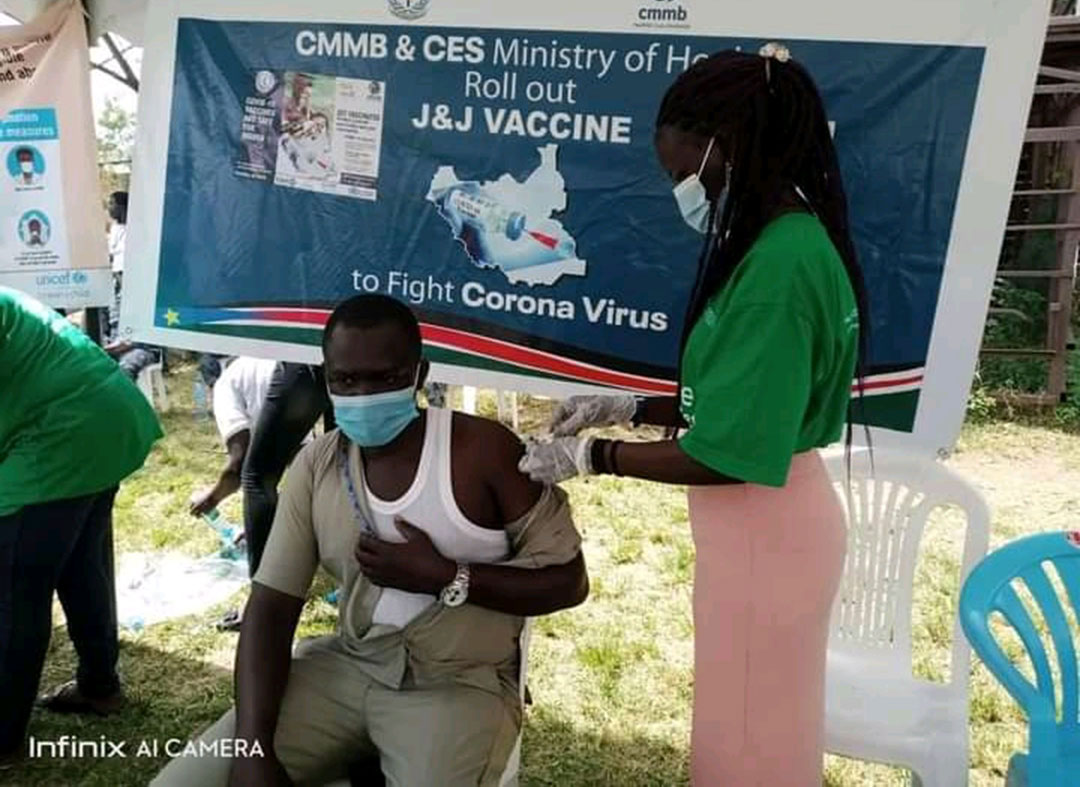South Sudan launches mandatory testing and vaccination
There are differing views on whether mandatory testing and vaccinations will improve COVID-19 vaccine uptake.
- 22 November 2021
- 4 min read
- by Winnie Cirino

South Sudan health authorities have embarked on a mandatory COVID-19 testing and vaccination campaign to gauge the level of infections in the country.
“We have challenges with getting the vaccines to everyone because of logistical challenges and because people are busy in their institutions,” says Dr John Rumunu, the country’s acting COVID-19 incident manager. “We want to help people by bringing the service closer to them.”

Credit: Simon Deng
“The task force resolved to carry out the mass vaccination programme in all public and private institutions; this is to caution all the institutions to know that in the next few months, travelling outside might require a mandatory COVID-19 vaccine certificate.”
So far about 61,000 people, or 0.44% of the country’s 12 million population have been fully vaccinated, according to Dr Sacha Bootsman, COVID-19 incident manager at the World Health Organization (WHO) in South Sudan. Much more needs to be done to encourage people to take the vaccine.
“We are testing less, which means we do not have the actual picture of the pandemic in the country,” says Angelo Guop, manager of the Public Health Emergency Operations Centre. “If you are missing a lot of cases in the community, and you are reporting few cases, then this alone may be the reason why people relax.
“People will be saying we have no cases in South Sudan, but you are not capturing cases. This is where the importance of testing comes in, such that we get the actual picture,” Guop continues.
Guop is optimistic that South Sudan will meet the target of vaccinating 10% of its population by the end of the year because there has been a high demand for vaccines since the Johnson and Johnson vaccine was introduced, most likely because it is a single dose vaccine.
Have you read?
Forty-two-year-old Lowi James received his vaccination in October. It took him a long time to decide to get the jab because he was worried about the health implications. After observing that his colleagues who took the jab earlier were in good health, he made up his mind to get it too.
James is among those who welcome the mandatory testing and vaccination because, in his words, it is for the good health of the country.
“Imagine everybody is sick from COVID-19. Who will work in the offices and hospitals? The workforce in the country will be affected and activities will be halted. It is, therefore, important to hold a mass vaccination to ensure public safety,” says James.
Zabib Musa is a women's rights activist working with the Islamic Development and Relief Agency. She received her full doses of AstraZeneca vaccine in July because her work involves a lot of travel both inside and outside the country. She also wanted to protect her family from getting infected through her.
Musa disagrees with the government’s decision on mandatory testing and vaccination because she believes South Sudanese will become resistant, to a level that they feel taking the vaccination is a stigma in itself
“People still have the myth that COVID-19 is cough and just the normal flu. They don’t look at it as something big, so mandatory testing and vaccination will be a challenge, and this is worst with the community outside Juba,” says Musa.
“Before making it mandatory, the government should support awareness among communities on the testing and vaccination to promote uptake, build political support and community preparedness to improve equity and the access to the COVID-19 services in South Sudan.”
She says that’s when more people will go for the vaccines.
Musa also also feels that if the people received daily detailed reports on COVID-19 cases, it would show the seriousness of the virus and people would be inspired to willingly go for the vaccine.
More from Winnie Cirino
Recommended for you








